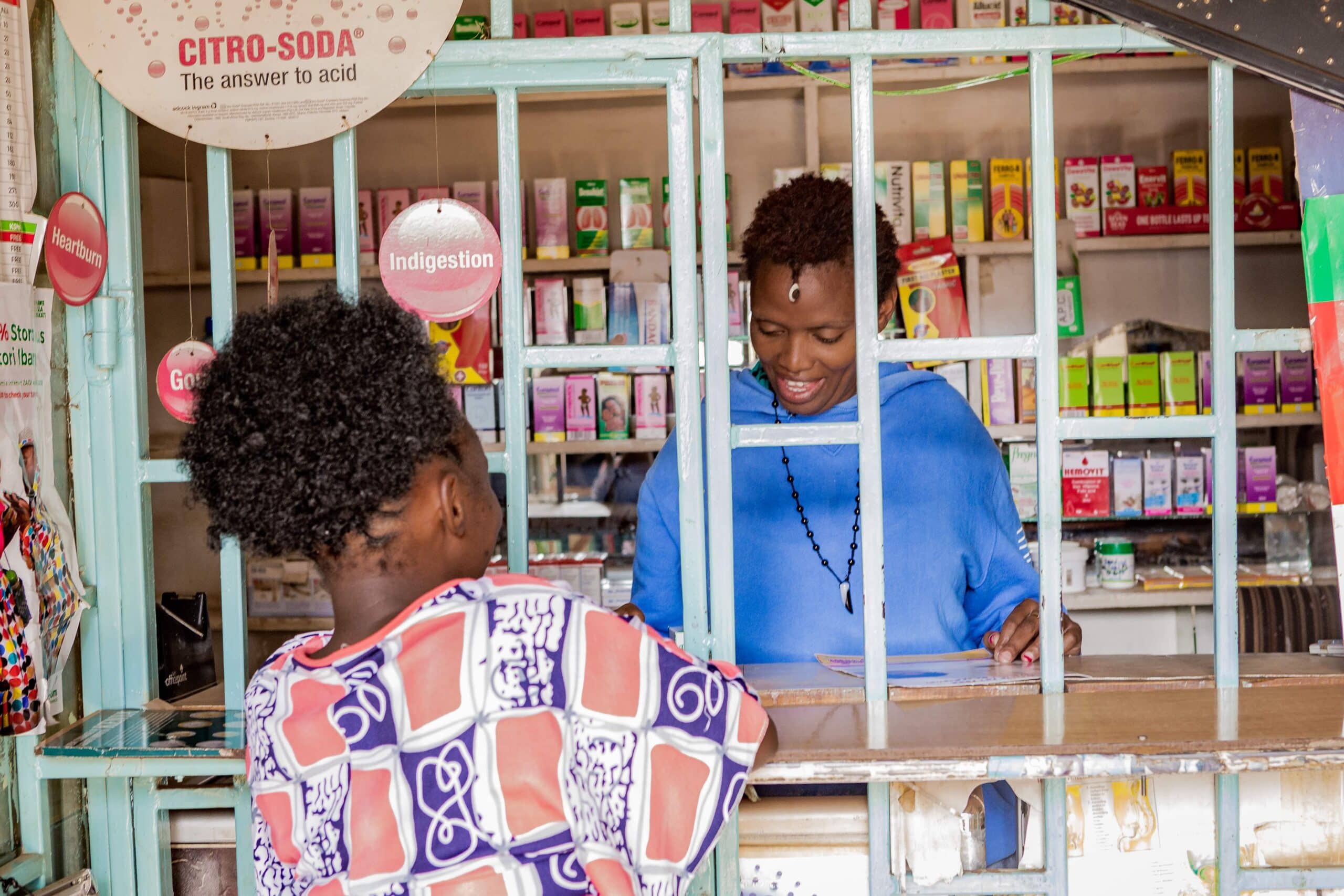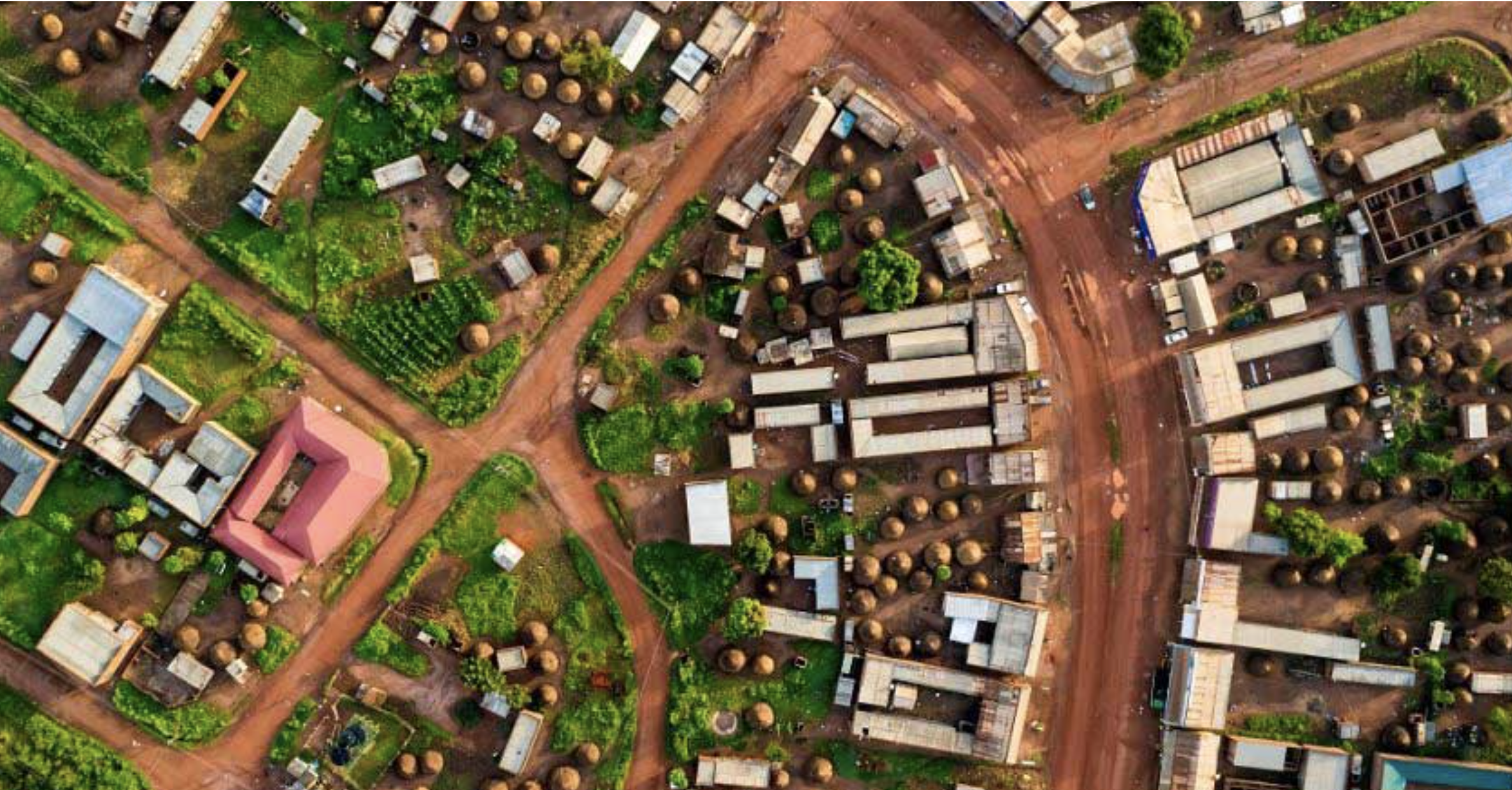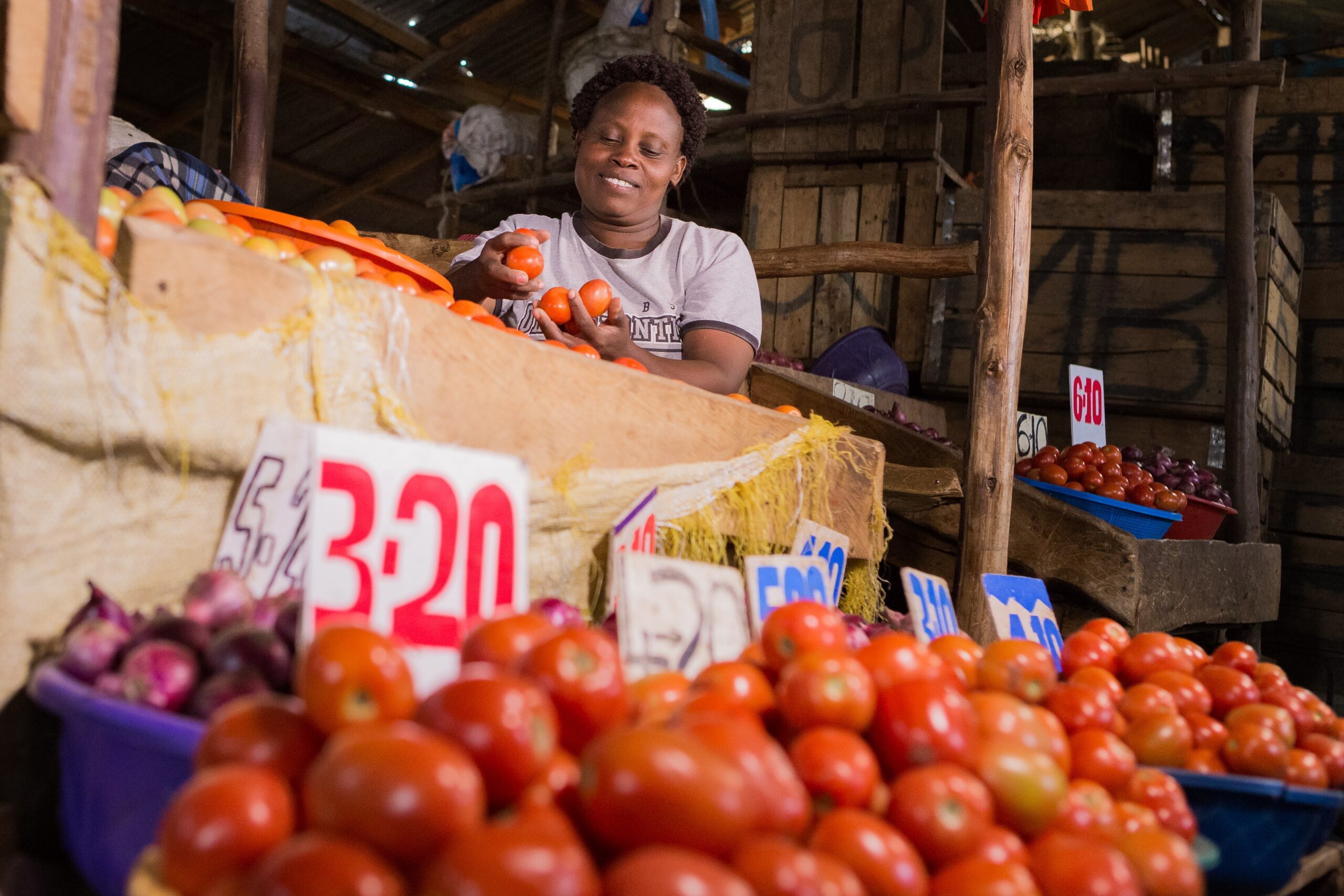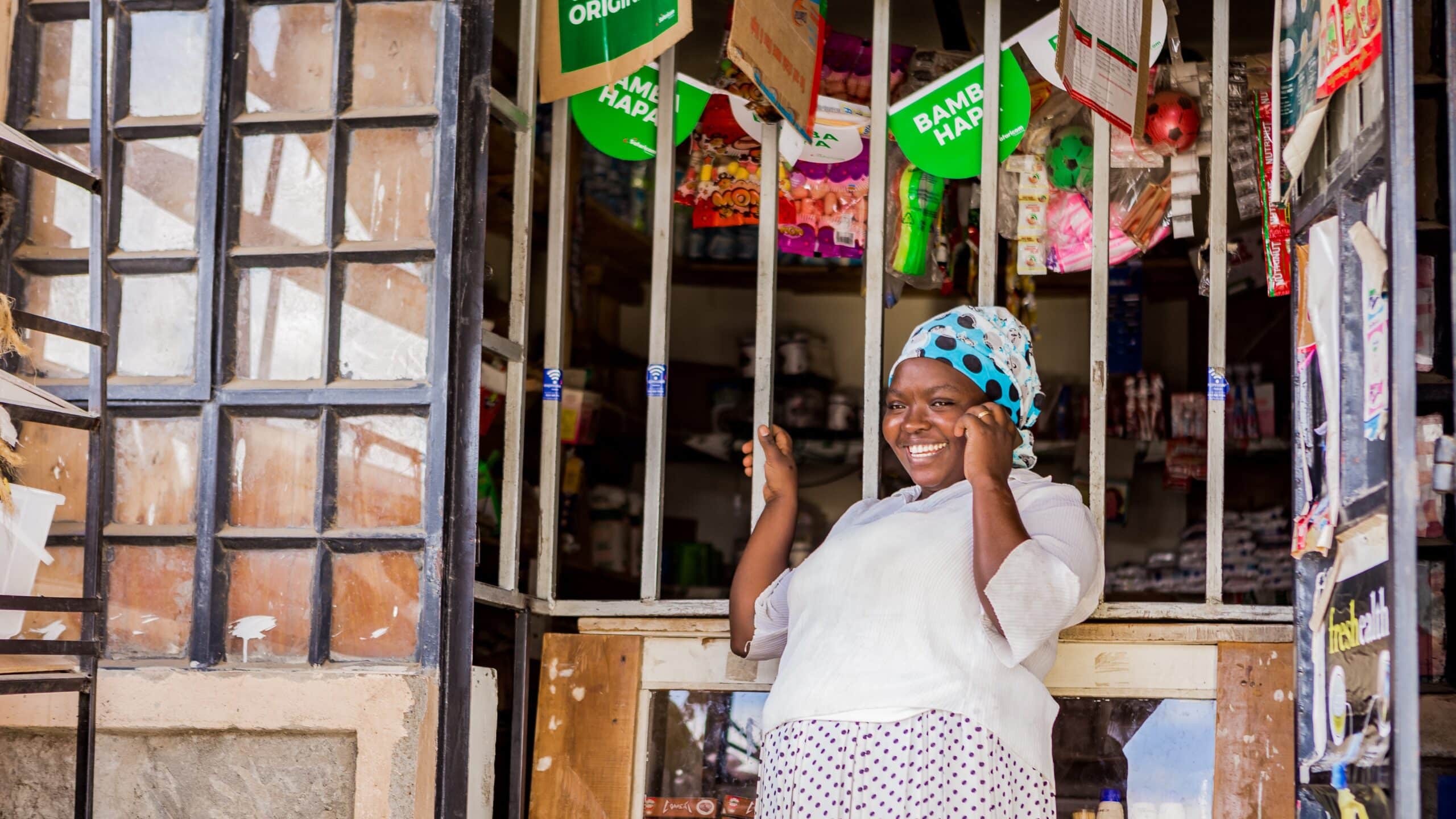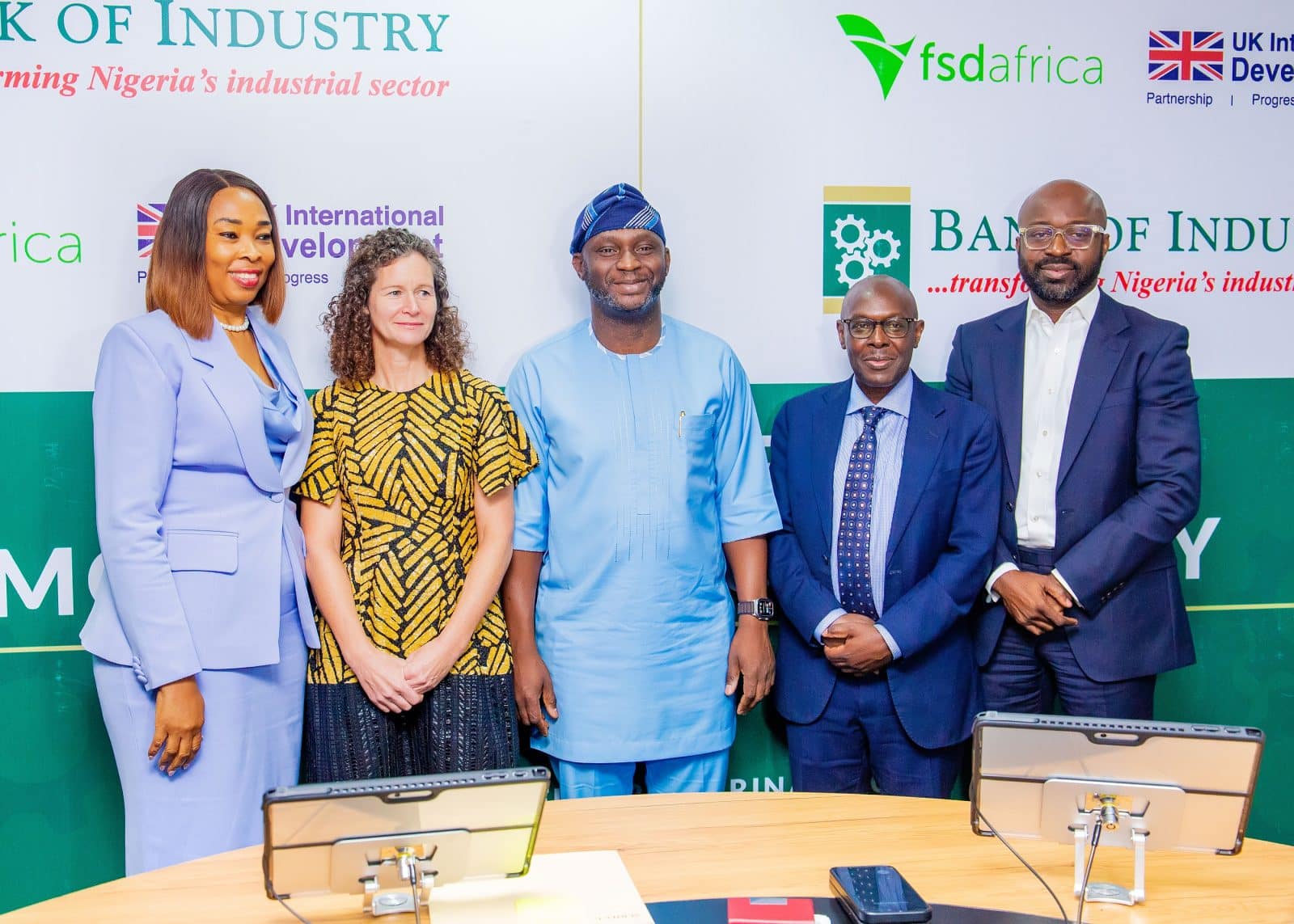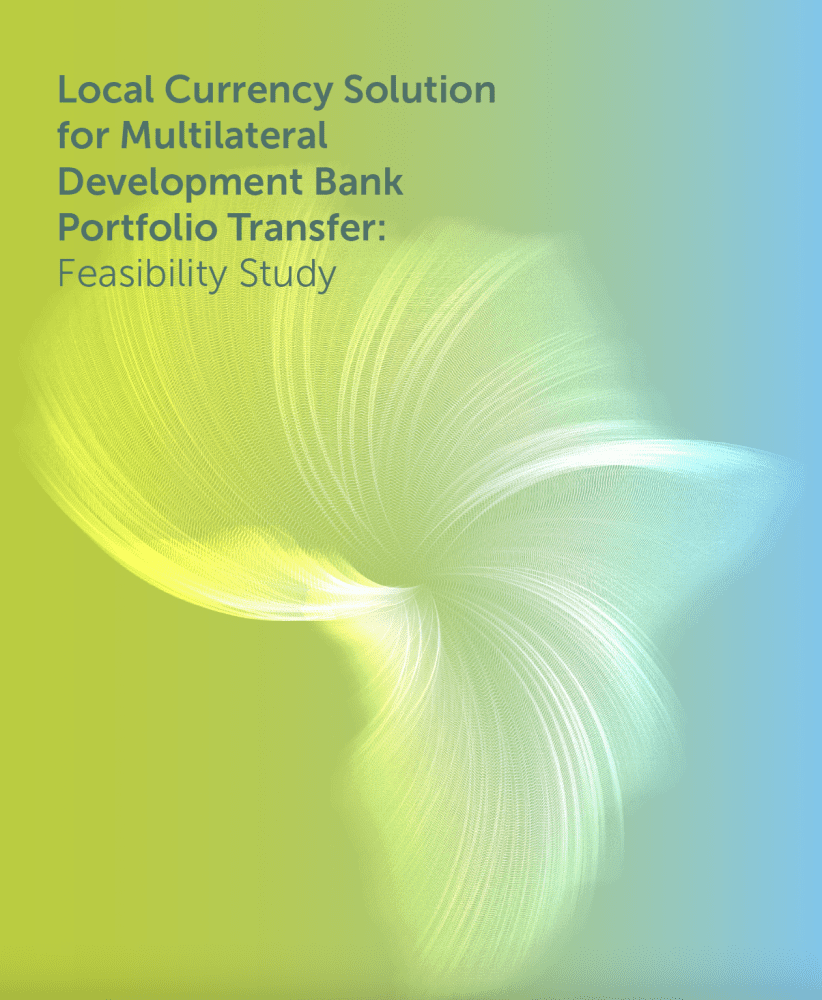Lagos, Nigeria – The Bank of Industry (BOI) is pleased to announce a significant milestone in its commitment to promoting sustainable finance in Nigeria with the formal signing of a Memorandum of Understanding (MOU) with FSD Africa, a leading agency dedicated to strengthening climate financing in financial markets across Africa.
Under this partnership, FSD Africa will deepen BOI’s sustainability finance proposition, providing technical assistance, strategic guidance, and capacity development initiatives. This will involve supporting the bank in strengthening its sustainability strategy, delivering decarbonisation pathways and advancing its adaptation finance initiatives. These resources will better position BOI to offer tailored lending solutions and business support for Nigerian climate-focused projects, further solidifying its position as a key driver of green finance in the country.
The MOU establishes a robust framework for collaboration, enabling BOI to expand its climate financing portfolio and support enterprises committed to sustainability. This partnership will deepen BOI’s impact in fostering climate-resilient economic growth across Nigeria.
Speaking at the signing ceremony held at BOI’s headquarters in Lagos, BOI Managing Director/CEO Dr. Olasupo Olusi said:
“This partnership with FSD Africa is a critical step in our efforts to promote climate resilience and sustainability as one of our central pillars of our operations. Together, we will pioneer innovative solutions that address the challenges of climate financing while unlocking opportunities for businesses and communities across Nigeria.”
Representing FSD Africa at the event, Dr. Evans Osano, Chief Financial Markets Officer, said:” Our partnership with BOI in advancing sustainable finance is pivotal at this critical time. Nigeria’s annual climate finance gap is estimated at USD27.2 billion. Bridging this gap requires concerted effort including catalysing domestic capital in addition to international investments to drive sustainable investments. We are excited about the bank’s commitment to promoting climate transition and driving Nigeria’s climate commitments towards net zero, and we are happy to be part of this journey.”
The MOU aligns with BOI’s recently launched three-year strategic plan, which prioritizes climate and green finance as key focus areas.
“With the support of strategic partners like FSD Africa, we are confident that BOI will continue to play a leading role in fostering sustainable development and driving positive change across Nigeria’s economic landscape.”Dr. Olusi added.
This partnership represents the beginning of a transformative journey, creating a framework for innovative and impactful collaboration. BOI and FSD Africa reaffirm their shared commitment to advancing the climate finance agenda in Africa and addressing the pressing challenges of climate change.
